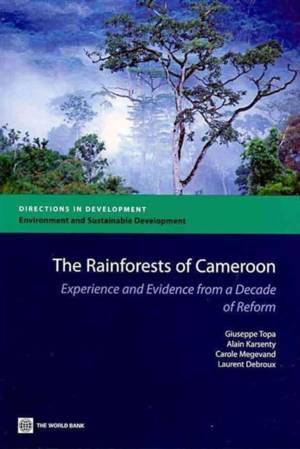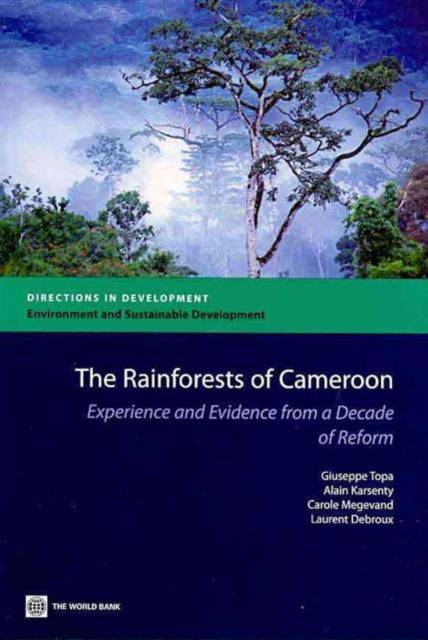
- Afhalen na 1 uur in een winkel met voorraad
- Gratis thuislevering in België vanaf € 30
- Ruim aanbod met 7 miljoen producten
- Afhalen na 1 uur in een winkel met voorraad
- Gratis thuislevering in België vanaf € 30
- Ruim aanbod met 7 miljoen producten
Zoeken
The Rain Forests of Cameroon
Experience and Evidence from a Decade of Reform
Giuseppe Topa, Alain Karsenty, Carole Megevand, Laurent Debroux
€ 23,45
+ 46 punten
Omschrijving
Starting in 1994, Cameroon introduced regulatory and market-based reforms to regulate access to its rainforests, balance public and private interests in those forests, and integrate wider economic, cultural, and environmental perspectives of the value of forests. Based on historical data and extensive interviews, this report concludes that the reforms brought order over the most aggressively competing interests and started to address deeper social and environmental issues, but a significant unfinished agenda remains. On the positive side, information on the boundaries, ownership, use rights, and management of Cameroon's rainforests has become available for public scrutiny, along with information on detection and prosecution of illegal activities. Better and better known rules of the game have improved forest governance and collaboration between forest institutions and civil society. More than 60 percent of Cameroon's rainforests are under management systems that emphasize sustainability. Illegal logging has declined sharply managed parks and production forests, although it persists in rural areas. The restructured forest industry has adopted internationally recognized management practices that have started to align logging with the forest's capacity to regenerate. Cameroon has established rules to preserve customary rights to forests, and community forests have progressed despite unanticipated challenges. Yet further reform is needed. Deeper recognition of the customary rights of all people who depend on Cameroon's forests, regardless of ethnicity, is vital. Timber and nontimber forest products like medicinal plants and bush meat remain subject to illegal exploitation outside state forests. Cameroon needs qualified eco-investors to sustain conservation and diminish reliance on timber production. Community involvement in the management of all types of forests should expand further. Great attention to local markets and small firms will strengthen forest governance and the forest industry in important ways. Rewarding responsible corporate behavior with more lenient bank guarantees and tax incentives may prove as important for conserving forests as punishing corporate misbehavior.
Specificaties
Betrokkenen
- Auteur(s):
- Uitgeverij:
Inhoud
- Aantal bladzijden:
- 194
- Taal:
- Engels
- Reeks:
Eigenschappen
- Productcode (EAN):
- 9780821378786
- Verschijningsdatum:
- 29/07/2009
- Uitvoering:
- Paperback
- Formaat:
- Trade paperback (VS)
- Afmetingen:
- 152 mm x 226 mm
- Gewicht:
- 362 g

Alleen bij Standaard Boekhandel
+ 46 punten op je klantenkaart van Standaard Boekhandel
Beoordelingen
We publiceren alleen reviews die voldoen aan de voorwaarden voor reviews. Bekijk onze voorwaarden voor reviews.











